Can impaired heart function cause dizziness?
Impaired heart function will be dizziness, because the brain is directly dependent on the heart for blood supply, oxygen, blood supply, oxygen not to the brain blood Kan, will cause the brain's abnormal functioning, which is similar to the traffic is blocked, the need for supplies can not be reached, the person will produce muscle starvation, muscle starvation, we all know, therefore, no normal heart function can not play the normal role of the heart, up to the brain, down to the limbs, all rely on the normal cardiac function of the continuous transmission of oxygen! Blood supply! In order to make our health, will not lead to dizziness!

Impaired cardiac function rarely causes dizziness directly.
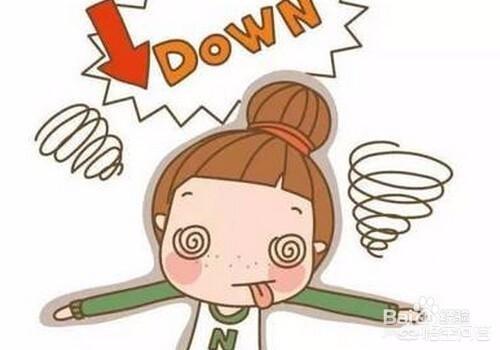
Unless a hemodynamic change has been caused, i.e., low blood pressure is not enough to supply the brain with the normal blood and oxygen it needs.
Of course the heart is divided into left and right, and naturally heart function is divided into left and right, and when the left or right heart is not functioning properly due to some disease, the next step is left or right heart failure.
It is also important not to completely separate the impaired function of the right and left heart, as they can also interact over time possibly leading to total heart insufficiency.
But what we often refer to clinically as cardiac insufficiency, cardiac grading, and heart failure is more about systolic function, which is the function of the heart to eject blood. That is, left heart function.
Also for the left ventricle is primarily responsible for pumping blood to the entire body, thus meeting the needs of the tissues and organs throughout the body.
Once you have heart failure, it's troublesome. The hospitalization mortality rate for heart failure patients is about 6%. That's six out of 100 heart failure hospitalizations that don't make it to the hospital. Chronic heart failure has a five-year mortality rate of 50%, exactly like many cancers.
Strictly speaking heart failure is only a result and not a diagnosis of a disease.
When the heart gets bigger and bigger for various reasons, there is also impaired heart function and slow heart failure.
What can cause a heart to get bigger?
The common ones are nothing more than clogged water and sewage pipes leading to myocardial ischemia, which leads to myocardial necrosis and impaired cardiac function; for example, acute myocardial infarction.
Doors and windows don't close tightly for various reasons, and the house slowly gets bigger until it collapses; for example, all kinds of valvular disease, whether secondary or primary, congenital atrial septal septal defects, cardiomyopathies.
The circuit either breaks and beats slowly or short-circuits and beats fast, and gradually the house gets bigger, which can also lead to heart gradually the house gets bigger, which can also lead to heart failure. For example, various arrhythmias.
Of course right heart failure is more often caused by lung disease.
A range of symptoms can occur after heart failure, but the main one is reduced exercise tolerance.
The commonly used classification of cardiac function is based on activity level.
Grade I: General activity does not cause symptoms such as fatigue, palpitations, or dyspnea.
Class II (Mild Heart Failure): no conscious symptoms at rest, general activity may cause the above symptoms, which resolve quickly after rest.
Class III (moderate heart failure): asymptomatic at rest, lighter-than-usual activities cause the above symptoms, which can be relieved only after a longer period of rest.
Class IV (severe heart failure): symptoms of heart failure are also present at rest and worsen with physical activity.
There is no mention of dizziness in this, but it is not impossible for dizziness to occur, and if heart function is severely impaired and low blood pressure occurs, it can cause dizziness symptoms.
Of course this is mainly a symptom of left heart function. Right heart failure tends to present with bilateral lower extremity swelling, abdominal distension, ascites, loss of appetite, and so on.
Preventing heart failure means preventing what causes the heart to enlarge. There is currently no one effective way to prevent heart failure.
Conventional treatment: ACEI, aldosterone antagonist, b-blocker; diuretics can improve the symptoms; at present, the new drugs are arni, has entered our country part of the city. Of course, there are other drugs in the clinic.
In addition to conventional treatments, there are methods such as pacemaker therapy and heart replacement therapy. But none of them will work particularly well or can't be generalized on a large scale.
The most effective method is still prevention.
The latest guidelines for heart failure (the diagnostic and therapeutic criteria for physicians practicing medicine), have made controlling high blood pressure the highest level of indication for treating heart failure!
So we prevent heart failure by controlling high blood pressure!
To start with, seek early medical attention for chest pain!
Don't overwork the heart!
Give her a smooth blood pressure, stabilized blood sugar, calm lipids, and a warm home!
As for the dizziness, most of it is not caused by heart failure.
Egg: If your blood pressure is fine, check your cervical spine, cerebral blood vessels, and so on.
It is indeed possible.
After all, the heart is the source of energy for all organs, and the brain is no exception.
When the patient's heart function is seriously impaired, the pumping ability will decline significantly, the brain can receive blood will also be simple, resulting in the clinical reality of insufficient cerebral blood supply, and blood perfusion of the brain regions of the organization is reduced, naturally, a series of clinical symptoms, and dizziness is one of the more common of this complete process of lesions.

But I would consider impaired cardiac function and dizziness to be on the same level of fruit than cause and effect!
Many people say that "the heart and brain have the same origin", which is a conclusion derived from the formation mechanism of cardiovascular and cerebrovascular diseases.
And in clinical practice, cardiovascular diseases do always appear together, in which the heart and brain are only victims, and the protagonists are the blood vessels that run up and down.
When the patient's blood vessels exist multiple serious narrowing, naturally affect the blood flow, and then appear related diseases, and impaired cardiac function is many heart disease serious to a certain extent, the common lesion stage; and dizziness is the most common clinical symptoms of intracerebral diseases, and even high blood pressure can lead to, it is very likely that both, are due to the obstruction of the blood flow (one of the cardio-cerebral and cerebrovascular diseases) This is likely to be due to the obstruction of blood flow (one of the cardiovascular diseases).
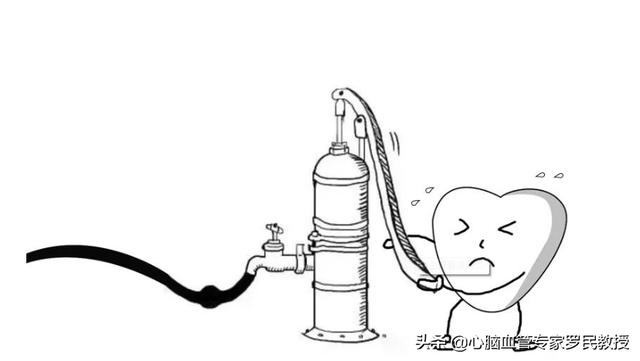
Also, has it ever occurred to you that the two are not related?
Although impaired cardiac function is not a disease but an end stage of the heart, such patients are often suggestive of multiple diseases, which in itself is already seriously predisposing.
Dizziness, on the other hand, is a very common symptom that can be caused by a wide range of diseases, or even the absence of a disease, and is therefore not a confirmatory condition for the diagnosis.
When the two appear at the same time, it is true that there may be some connection, but at the same time, it may also mean that the patient suffers from a variety of diseases, the causes of these two do not have any connection possible, so you need to be serious and careful to distinguish.
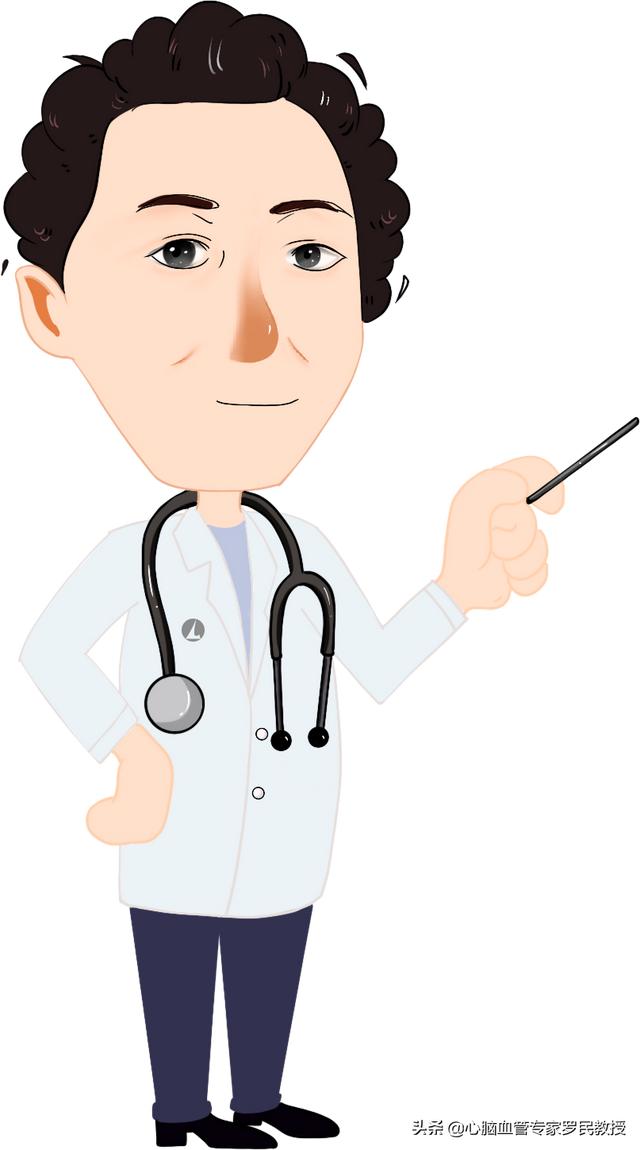
I hope my answer helps you!
If there's anything you don't understand, comment and private message me!
Will.
If the left heart function is damaged, cardiac insufficiency, then the heart pumping ability is poor, the blood of the brain is pumped by the heart, if the heart pumping ability is poor, then the blood pumped into the brain will be less, the brain will be relatively ischemic, because the blood carries oxygen, so the brain will also be lacking in oxygen, the lack of oxygen will lead to dizziness, because the brain does not get enough oxygen, the brain tissues will be dysfunctional, the performance of This is called Asperger's Syndrome, which is characterized by dizziness, or headache, and in severe cases, coma. If a person's heart stops beating for 6 seconds, the brain will be deprived of blood for 6 seconds, and then it will be blackout, coma, and fall down ......

There was once a patient with frequent dizziness, who was investigated for a long time without finding out what the problem was, and it was only when an electrocardiogram was done later that it was found to be the cause of the heart, which was an arrhythmia leading to insufficient blood supply to the brain, and then dizziness appeared.
The heart and the brain are the most central organs of the human body, in which all the blood of the organism needs to be pumped out by the heart, so when the heart is damaged, almost all the organs and tissues will have corresponding malfunctions. For example, the brain will be dizzy or even fainting, the kidneys will have no urine due to lack of blood, the skin will be wet and cold, and so on.
However, because there are many causes of dizziness, some are caused by the heart, some are caused by cervical spondylosis, there may be cerebral arteriosclerosis, and in severe cases, it may be stroke, and there are also some localized problems, such as vestibular dysfunction of the ear can also have dizziness, such as Ménière's disease, otitis media, and so on, and these dizziness will also have nausea, vomiting, cold sweat, and so on, and the doctor has to ask for a clear history and the corresponding examination The doctor has to ask for a clear history and appropriate tests to make a differential diagnosis.
The heart is the core organ of the human body, without the heart beating, no other part of the body can work properly. There are two main reasons why some people have problems with their heart, the first one is congenital and the second one is caused by acquired diseases, such as coronary heart disease, heart disease and so on.
So, can poor heart function cause very noticeable dizziness?
Dizziness and lightheadedness are relatively common in daily life, and poor sleep, cervical spondylosis, hypertension, etc. are the more common causes. However, dizziness and lightheadedness accompanied by significantly low blood pressure may be caused by impaired cardiac function, and in severe cases, life-threatening conditions such as fainting and cardiogenic shock may occur, at which time medical attention should be sought promptly.
Next, 9 signs of a bad heart:
1. Chest tightness:
The chest is heavy as if pressed by a large stone. Excluding respiratory disorders and emotional effects, you should consider whether it is caused by myocardial ischemia. Suddenly appeared serious chest tightness, and accompanied by severe pain, then it is likely to be the emergence of acute angina or even heart attack, need to immediately call 120, go to the hospital to receive emergency treatment.
2. Shortness of breath:
If shortness of breath and tachypnea occur while lying down and are relieved when sitting up, then heart failure may be present. This is due to the increased return of blood to the heart when lying down, which leads to an increase in airway resistance, and shortness of breath occurs.
3. Dizziness:
If a person with low blood pressure has frequent dizziness and lightheadedness, it may be due to impaired cardiac function. In severe cases, life-threatening conditions such as fainting and cardiogenic shock may occur.
4. Anxiety:
If palpitations, panic attacks, and fidgeting still occur despite a normal mood, consider whether the cause is an increased heart rate or arrhythmia.
5. Less urination:
Impaired cardiac function will lead to insufficient blood flow to the kidneys or excessive body venous pressure, often resulting in oliguria and lower extremity swelling. Long-term renal ischemia can lead to deterioration of renal function, proteinuria, and a vicious circle of aggravation of heart failure.
6. Fatigue:
Many patients with heart disease begin with weakness or fatigue, mainly due to the impaired function of the left heart, which reduces the amount of blood expelled from the heart and fails to meet the peripheral vascular perfusion.
7. Swelling of the lower extremities:
Noticing that your clothes and shoes have suddenly become too tight to wear? This is not necessarily a case of gaining weight, but could also be a case of body swelling. Swelling of the body (especially the lower limbs) is often associated with impaired heart function. This is because a decrease in blood supply to the heart leads to a decrease in blood flow through the kidneys and a decrease in the amount of water expelled from the body, making the lower extremities prone to swelling.
8. Loss of appetite:
If right heart failure occurs, it can cause gastrointestinal stagnation, which in turn affects digestion and leads to loss of appetite. In addition, symptoms such as bloating, nausea and vomiting, constipation and epigastric pain may occur.
9. Coughing:
If there are no other symptoms such as fever or cold, but the cough is more frequent at night than during the day, and more often lying down than sitting up, it is important to be alert to the possibility of damage to the heart, which may be caused by irritation of the airways due to lung stagnation. Note that once one or more of these occur, you should go to the hospital for examination. Rule out related diseases, and if a heart problem is diagnosed, it should be treated aggressively.
Finally, do the following things to take care of your heart health:
1, drink enough water and a cup of heart-healthy tea every day:
The heart is most afraid of drinking less water or thirst fierce water, so, daily to develop the habit of active drinking water, have a habit of drinking tea friends, you can drink some tea to help heart health.
2, walk 10-20 minutes a day:
As long as the daily hatred of 10-20 minutes of fast walking, long-term adherence to the afternoon, the heart is a kind of care.
3, Wake up in the morning and stretch:
Every day before you get up, stretch, stretch your arms slowly to the top of the head above, hands crossed, conducive to promoting the return of blood to the body, after which you can do 5-10 minutes of stretching exercises, such as: leg press, spreading the arms, hands on the back of the head and so on.
4, eat less salt:
Reducing your salt intake by one-third lowers your risk of heart disease by 40%. Salt intake should ideally be limited to 5 grams to 6 grams per day.
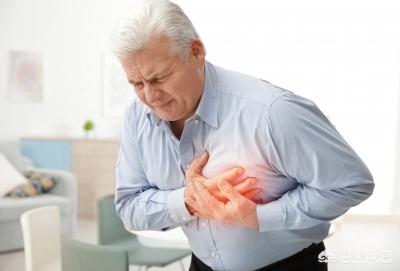
Click on the bottom of the page [Learn More] to see more answers or ask the doctor a question for free!
Follow "Family Doctor Online" headline, more health Q&A easy to see~~~~
Thanks for the invite.
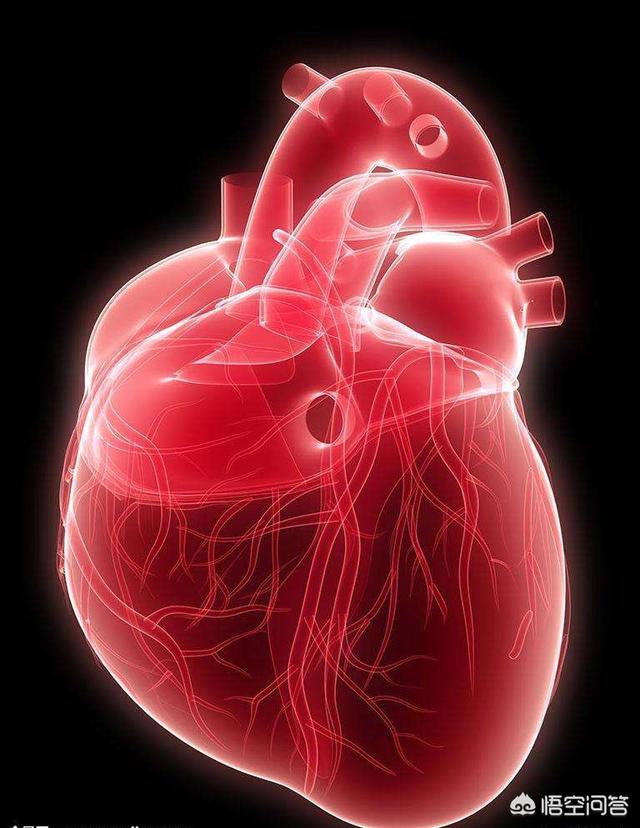
There is no doubt that impaired heart function can cause dizziness, blood supply is not enough dizziness is inevitable, the oxygen supply does not go up, will certainly lack of oxygen and dizziness, the importance of the heart we all know, day and night for us to supply blood and oxygen, the damaged heart can not work properly, the surrounding diseases will follow.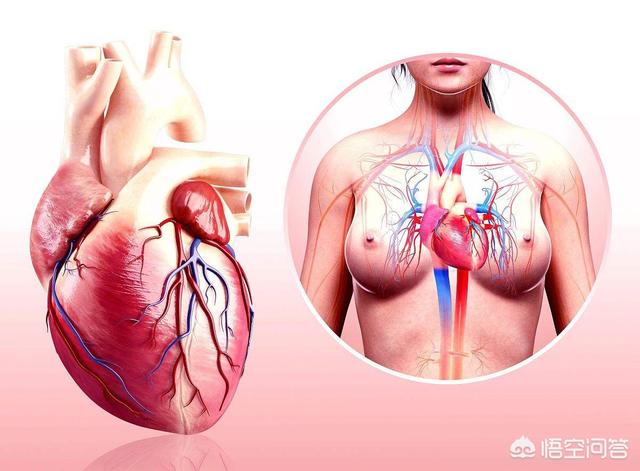
1, heart damage should be timely to the regular hospital timely consultation, so as not to continue to deteriorate. First of all, to solve the physiological problems, in order to ensure that the condition will not continue to deteriorate.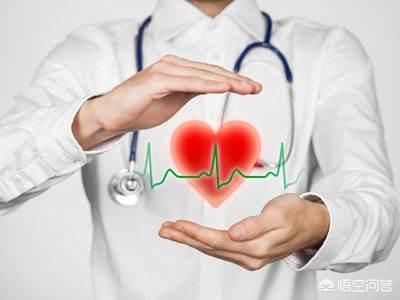
2, maintain a positive attitude, have a good mood, comfortable mood is to reduce the fundamental heart pressure, but also will reduce the status of dizziness.
3, the cold winter weather, the burden on the heart will increase, this time to do a good job of warmth, reduce the load on the heart, so that the blood pressure can be stabilized, reduce reduce the damage to the heart.
4, should not long nest couch, also should not do some strenuous exercise, both will be heart damage, increase the unnecessary burden, reasonable exercise, not long nest, not strenuous exercise, so that the heart has a good working pressure range.
5, reasonable diet, so that blood pressure down, high blood pressure heart burden is naturally high.
I wish the heart damaged a speedy recovery.
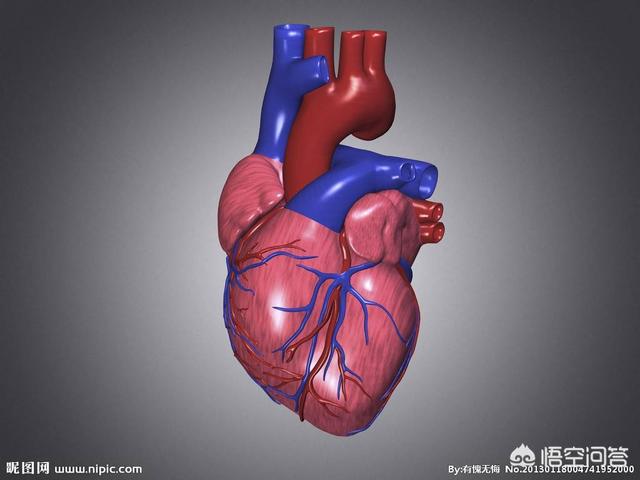
Thanks for the invitation. Does impaired heart function make you dizzy? I've thought about this question for a while and think I should answer it like this.
First, various heart problems, endocarditis, myocarditis, pericarditis, rheumatic heart valve disease, atherosclerosis coronary heart disease caused by hypertension, atrial fibrillation.
All of them will cause the heart function to be impaired, resulting in insufficient contraction force of the heart muscle. Then the blood output of the heart cannot meet the needs of the organs and tissues of the body.
The body will have impaired circulation and there will be a range of signs and symptoms.
Myocardial ischemia and insufficient blood supply to the head are the most direct manifestations of impaired cardiac function.
Myocardial ischemia can lead to cardiac hypertrophy, prolonged heartburn and chest tightness, palpitations, fatigue, weakness, and weakness in the legs and feet. Chronic arrhythmia.
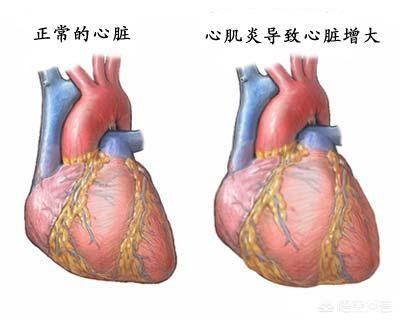
I have had bradycardia, severe with only 40 or so beats, resulting in myocardial ischemia and left atrial enlargement. Chronic arrhythmia, diatonic in mild cases, up to quadruple rhythm in severe cases. More than a dozen episodes per minute.
The worst one occurred with atrial fibrillation and a completely irregular heartbeat. He was rushed to the hospital to be resuscitated with intravenous sildenafil.
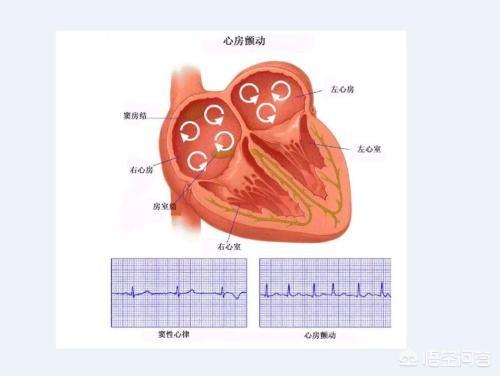
Impaired heart function leads to insufficient blood supply to the head, cerebral blood vessels are ischemic, brain cells and tissues are deprived of oxygen when they are deprived of blood, and that's a direct result of dizziness, headache, and lightheadedness.

Any problems with heart function need to be treated aggressively.
Many problems with the heart can be cured. They can also be controlled. The key is to pay attention and not progress to heart failure.
Mild heart failure is treatable and can be resuscitated, while severe cases are directly life-threatening.
Return to nature,, the unity of heaven and man on the function of the heart,, the heart function is the heart working capacity of the general term, the left atrium of the heart is the supply of qi and blood circulation area to the brain, the function of the left atrium is a powerful pulse in the spirit of power, pulse is the source of ventricular power, for the genetic power, is the spirit of the body, the virtual great infinite is the eternal force, so the yangsheng pulsation never stop belonging to the power of life, the life of life at the end of the transfer of another state of existence,. The left atrium's functional destructive force is mainly the kidneys and liver with the left and right eyes transporting the information of the area, which is the interconnecting linkage of life and living,. 生活中的振荡思维是心神不定因,情绪不稳因,主要振因为托离正见思邪λ邪因,夲是可控的比如邪淫思维,先有不良意识完全可控,邪思下行人随是关键,反复增大,会使心神经区与大脑系区产生邪淫要求而行于极端,造成强阴使心区进阴产生阳阳触而振荡,邪淫重后,邪力使心内反复振荡 yin and yang touch force is as big as lightning impact atrial lining produces microporous, so that the heart gas pockets forever lost enough power, and automatic slow gas, the stronger the evil lust the greater the internal injury, if the microporous punch in the middle, is the heart gas is always in the half there, hit the blood gas force is too weak, so that the brain supply of blood and gas is seriously insufficient, and then the young are dizziness and uncertainty, frail, sick, kidney yin cover yang without energy, liver yin after the liver yang adjustment fire λ heart, heartbeat like a rabbit, eyes starry, slow rise for half a cripple. Slow up and sit slowly for half a cripple,. The human body has a law, when the evil force so that the heart did not suffer a major injury can be anti-wake to the positive, is to open up the catastrophe, and only look at the absence of the Ropes, and so the qualitative change has been late after the emergence of the evil, evil is a forbidden area, the stopping is the heart of the life-long benefit,. Evil force is a personal thief, will steal your happiness and make life wither prematurely, do not enter the forbidden area, step on the ditch when the self-suffering. Return to nature! Forever in nature is spinning synchronization is the life force, old for the child old, the end for the good end, always return to nature!
This question and answer are from the site users, does not represent the position of the site, such as infringement, please contact the administrator to delete.